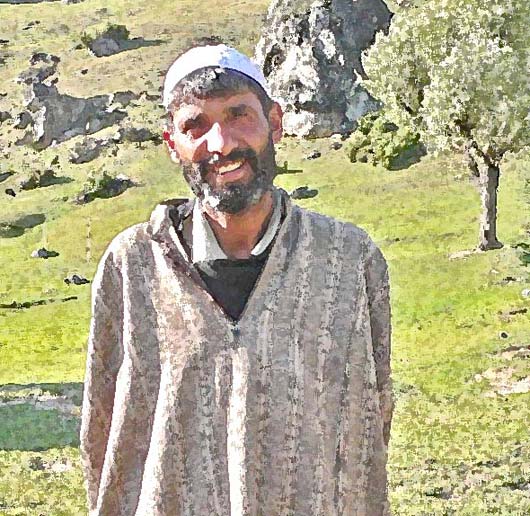Give him power and he will use it against his fellow citizens. Give him authority and he will exploit the vulnerable for his own benefit. But when faced with a stronger opponent he will show his back and run. Syed Asma dissects the ingredients that go into the making of a Kashmiri.
Kashmiris have a unique character! As soon as a simple Kashmiri puts on a khaki-wadri and holds a baton in his hand he becomes the most powerful man standing on the roads.
The same is true with the bureaucrats as well as the ministers. As soon as they hold a chair of power, they tend to forget their social responsibilities and exploit their position to the maximum.
There have been many interesting cases where the display of power was vivid. Remember the infamous sex racket that was unearthed in Srinagar city in 2006, which was allegedly patronized by a number of high-profile politicians and bureaucrats. These powerful people exploited their positions to exploit girls including minors. But as it is with these people with the power they got themselves exonerated over ‘benefit of the doubt’.
The victims claimed they were drugged, raped, blackmailed and exploited. As the investigation proceeded, it turned out to be an “officially protected” gang of prostitutes who had a close association with the power corridors of the state.
It is reportedly said that police knew about the racket but could not react because of the involvement of some biggies in it. It is also said that when Mufti Sayeed, the then Chief Minister was briefed about these happenings and about the involvement of his ministers in the racket he got the pimp’s (Sabina’s) house raided. Quite aware of the strong support she had gained within the system she had slapped a police officer and managed to come out from the custody with a few days.
She, the main pimp, even enjoyed police protection for some time. Later, the case was brushed under the carpet after high-rank police officials intervened, it is said.
Eventually, when the racket was brought into the public domain by the media, the anger in the public grew. The case was handed over to CBI, almost 44 girls and 56 men including politicians, policemen and officials were identified by a ‘minor victim’.
Many high ranked officers were caught one after another. On June 24, 2006, CBI first charge sheet against nine people under various provisions of PITA was presented.
But when things started getting worst the case was shifted to Chandigarh. It was said later in 2007, CBI had submitted a 4000-page report to the court. The CBI had 100 witnesses and the entire charge was in coded form. The accused had to approach Punjab and Haryana High Court to get it decoded.
After the case was shifted to Chandigarh, locals lost track of the happenings. Their only link was press notes released by the New Delhi based news agencies.
And finally one day it was revealed that most of the key accused including kingpin Sabina have been exonerated.
=Another noticeable unique characteristic of Kashmiris is their submissive nature. When faced with a powerful opposition they tend to give in easily. This helplessness is reflected in the ruling class too.
It shocked no one in Kashmir when chief minister Omar Abdullah accepted in the legislative assembly that he is helpless! Though he has often accepted his helplessness in reining the powerful security grid that works almost independently via social media platforms, this emotional outburst in state assembly was different.
He was reacting to the death of a 25-year-old youth from Baramullah by the army. He said, “Mujay Har Baar Logoon Ko Jawab Dena Padta Hai. Har Baar Mujay Har Goli Ka Hisab Dena Padta Hai.”
Since he became chief minister of the state, he has cautiously spoken about the decisions made by New Delhi for his state. It seems, like ordinary Kashmiris, he too has scum in the face of the powerful opponent (read New Delhi).
His helplessness is reflected in his statements regarding the revocation of controversial AFSPA which he has been advocating for some time now. He said, “What should be my answer, when I am even unable to prosecute the army personnel who have carried out such killing”, Omar said adding, “This is why I have been demanding revocation of Armed Forces Special Powers Act.”
But Omar is not alone when it comes to surrendering his powers in face of strong opposition. We all are in the same boat.
















